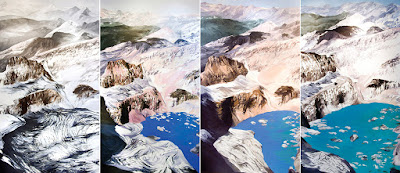Let's Talk Trash

Today was trash day, a term used here in the U.S. to indicate the day that those big 9-miles-per-gallon hydraulic-loaded trucks come and haul away the contents of your rubbish bins, big 50-gallon bins that for us somehow keep filling up each week despite our best efforts at recycling (our recycling bins are rather full as well). Of course everything is packaged here in the U.S., from the frozen peas to the replacement wiper blades for the car which come complete with every possible bracket and adapter for the various years and models of vehicles. Off it all goes into either the trash bin or the recycling bin, a dilemma made no easier at the recycling facility which is now fond of the term, "aspirational recycling," a term used to describe how we consumers throw in everything that we think can be recycled but aren't really sure so let the recycling facility sort it out (here's a hint, most of what we throw in with that mindset can NOT be recycled); and off it goes ...


